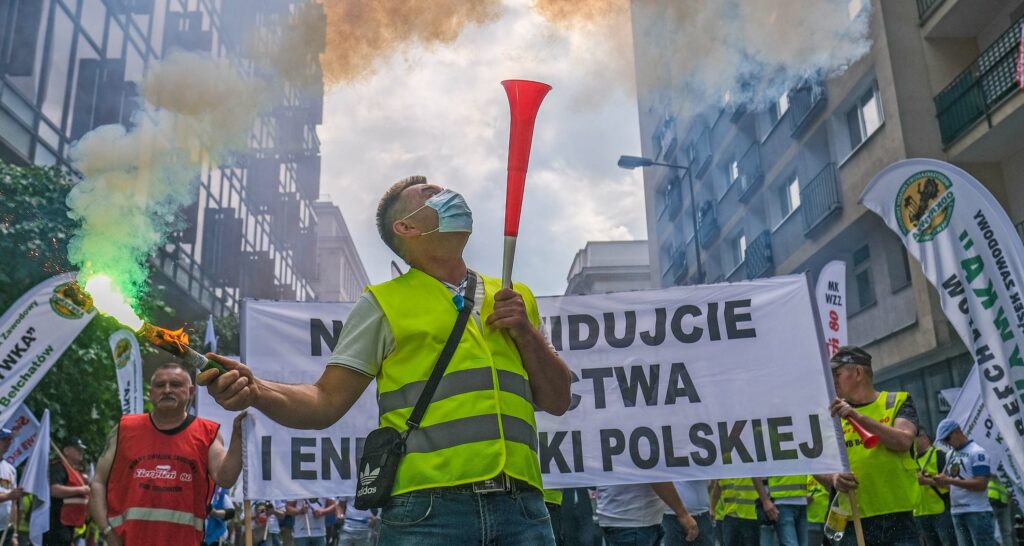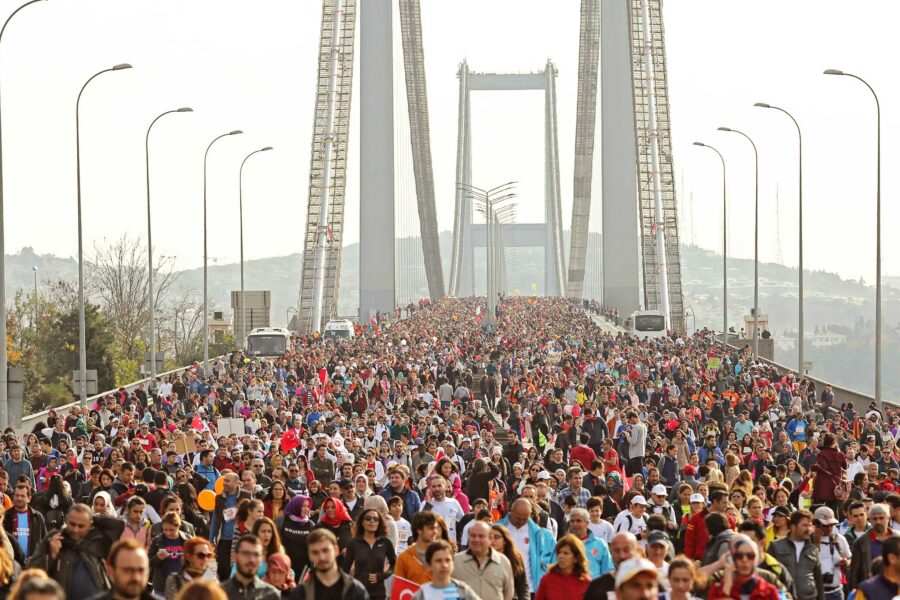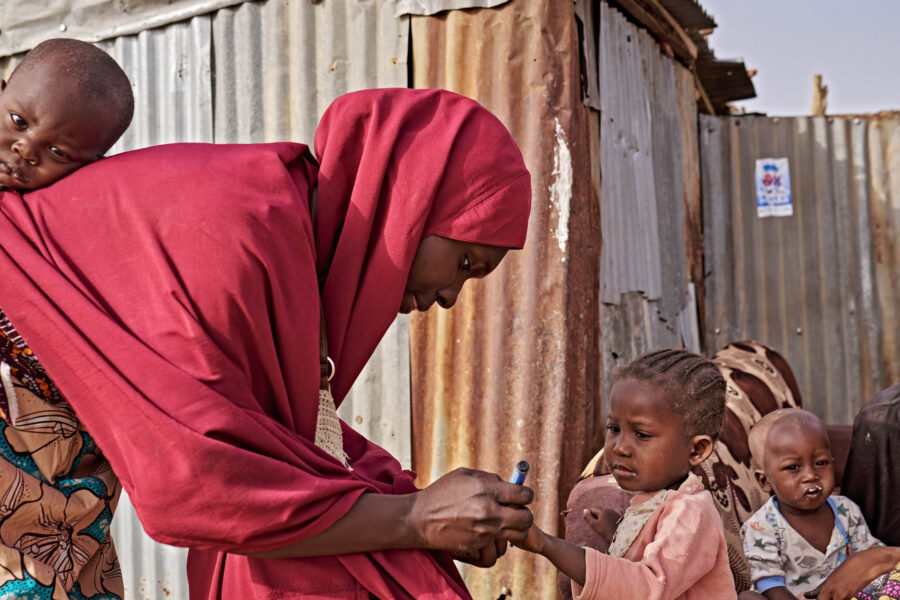Climate action is about people, not just numbers
Central to “leaving no one behind” is ensuring that workers in high-carbon sectors have every opportunity to transition to jobs in the new green economy
Climate — Global

Climate change is one of the greatest risks to the achievement of the Sustainable Development Goals (SDGs), particularly SDG 8 on decent work and economic growth. Jobs are affected by a range of climate issues, such as rising ocean waters, floods, heat stress, forest and other fires, and the destruction of infrastructure.
According to an ILO 2019 report on heat stress, for instance, the equivalent of 80 million full-time jobs could be lost by 2030 because it is too hot to work or because workers must work at a slower pace. This could be coupled with global economic losses amounting to USD 2,400 billion.
Meanwhile, public policies that aim to address the impact of climate change may result in unintended consequences, such as job losses due to carbon pricing or the closing of coal-fired plants.
However, the job losses caused by the effects of climate change far exceed those linked to ecological transition policies. In fact, those transition policies come with huge job creation opportunities.
According to ILO estimates, 24 million new jobs in renewable energy, energy efficiency, and sustainable transport could be created by 2030 if the 2015 Paris Agreement on climate change is implemented. A further 78 million jobs could be created in a transition to a circular economy marked by sustainable modes of production and consumption.
And while shifting to low-carbon and circular economies in line with SDGs 12 and 13 could result in the loss of some 78 million jobs, there would still be a positive balance of 26 million jobs by 2030.
In other words, it is not action against climate change, but rather inaction that will destroy jobs and livelihoods at scale.
However, the scale and difficulty of the structural transformations required should not be underestimated, particularly those related to energy systems. Among the challenges is the uneven geographic distribution of job creation and job losses, which can make it difficult for workers to access new job opportunities. For example, the province of Mpumalanga in eastern South Africa accounts for approximately 80% of total coal production and is central to the country’s decarbonization plans. However, most jobs in renewable energy and related employment are in the Northern Cape region.
Many other parts of the world are faced with similar challenges. That is why the notion of a just transition is fundamental to a successful ecological transition.
A just transition, as highlighted in the Paris Agreement, is about maximizing opportunities to create jobs, promote inclusive growth, advance social justice, and prevent and minimize the risks of job and income losses and economic and social disruption.
However, a just transition to a green economy will not happen automatically. It requires a series of appropriate actions in terms of policy process and content.
Firstly, social consensus is essential. Experience has shown that collective and participatory decision-making processes, which can be achieved through social dialogue, can fast-track action. Yet, at the level of social dialogue institutions, specific commitments on climate change in relation to employment are fragmented and diverse. According to the International Trade Union Confederation, of the 191 countries who submitted nationally determined contributions to the Paris Agreement, nine out of ten failed to incorporate social dialogue to ensure that workers and communities have a say in setting climate goals.
Nevertheless, there are some good examples of how social dialogue has been integrated into planned and negotiated decarbonization processes. For example, the tripartite agreement on the closure of Germany’s last coal mine, Prosper-Haniel, enabled a slow and gradual phase-out of subsidized coal, a socially acceptable reduction in staff, and a package of measures for the 1,200 affected miners.
Climate action is not just about carbon dioxide numbers and targets. Climate action is about people and actors in the real economy – workers with the right skills for a green economy, enterprises that can innovate and invest, and communities capable of diversifying their economies.
Skills development, reskilling, and upskilling of workers are central to this shift to a green economy.
The ILO estimates that of the 78 million workers whose jobs might be eliminated in the shift to a green economy, most will be able to find jobs in the same occupation in another industry within the same country through reallocation. However, nearly 24 million workers are likely to be in occupations where jobs will be lost without equivalent vacancies arising in other industries. These workers will require substantial reskilling into other occupations. According to an analysis by EY, oil and gas companies estimate that at least 43% of workers will need to be reskilled and that it may take up to 10 months to reskill or upskill the average worker. The analysis also highlights that up to 17% of workers cannot be reskilled or upskilled.
It is inevitable that certain jobs and livelihoods will be lost, which means that support programs will be needed for workers and communities. Strengthening social protection systems is central to this. Specific measures can include flexible financial transfers, affordable healthcare, and unemployment protection for those who lose work hours or livelihoods amid the phasing out of carbon-intensive industries. While decision-makers might be anxious about the huge public and private financing needed to secure jobs and income, only around 2% of the global labor force will be affected in the green transition.
Financing for a just transition is a central pillar of decarbonization but it has been lacking in many cases. A fundamental shift in mindset is needed: from one that sees social spending in the context of decarbonization as a cost, to one that recognizes that social spending is indeed an investment. Clearly, financing is linked to national capacities and there are significant differences in the capacity of countries at different levels of development. However, there are useful models and ongoing experiences to learn from.
The transition to a green economy is not gender neutral and could replicate current gender imbalances in labor markets. Of the approximately 20 million new jobs expected in sustainable energy transition by 2030, only six million jobs will go to women, since many jobs will be created in male-dominated occupations. However, it is encouraging to note that renewable energy employs approximately 32% of women, compared with 22% in the energy sector as a whole. Active labor market policies are needed to increase women’s participation in the job markets of the green economy.
All these complexities mean that comprehensive and coherent policy frameworks are needed that align climate, economic, and social policies. In 2015, representatives of governments and workers’ and employers’ organizations at the ILO developed Guidelines for a just transition towards environmentally sustainable economies and societies for all. The guidelines provide a framework for policy guidance and a practical tool for countries. In June 2023 the International Labour Conference will address the just transition issue, including industrial policy and technology. It will be a critical moment to take stock of policies and practices that can keep climate goals on track, ensuring that incomes and jobs are secured, leaving no one behind.





